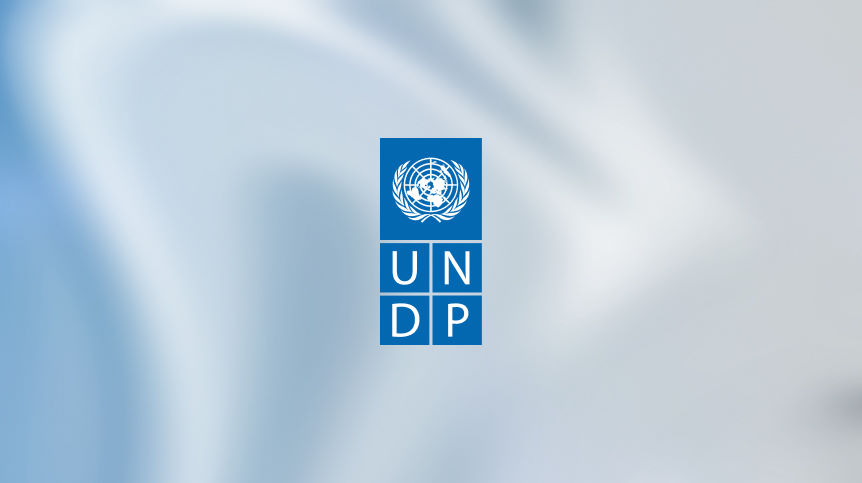
Judges from Eastern Europe and Central Asia gather in Moldova to discuss the region’s pressing issues around health, HIV, human rights and the law
The Eastern European and Central Asian Judges’ Forum on HIV, Human Rights and the Law – an independent body of judges from the region yearly convened by UNDP – starts their two-day meeting on 27 November 2023 in Chișinău, Moldova, to discuss challenges that punitive laws present to the full realization of the rights of people living with and affected by HIV.
The Forum, started in Moldova five years ago, returns this year to address challenges that remain in the region, as well as to highlight the progress made by countries like Moldova in addressing them.
“The Ministry of Justice is taking all measures to bring criminal policy in line with European standards, ensuring human rights is a priority. To this end, sanctions have been adjusted in criminal law with the aim of humanizing and clearly distinguishing cases of drug use from drug dealing. In addition, it is proposed to diversify the penalties in order to promote alternatives to imprisonment. Improving the human rights protection system remains a priority for the Ministry of Justice, and each of us understands that we must apply a proactive policy in the area of combating drug use, enhancing the role of the judiciary in ensuring the rights of this category of people are reconceptualized,” noted Veronica Mihailov-Moraru, Minister of Justice of the Republic of Moldova.
“At the core of our discussions during the Forum are real people – individuals whose lives and rights depend on the decisions made within the walls of courtrooms. It is our responsibility to protect these rights, to champion the cause of justice, and to ensure that no one is left behind in our fight against HIV,” said Andrea Cuzyova, UNDP Deputy Resident Representative to the Republic of Moldova.
The Eastern Europe and Central Asia (EECA) region is among three in the world where HIV infections and deaths are still on the rise. Fifteen countries in the region still criminalize HIV transmission, and many others, in law or practice, restrict access to life-saving services for key populations. People who use drugs are still the most impacted by HIV in the region; rigid drug policies often drive people away from vital health services. This exacerbates the HIV epidemic and facilitates high incarceration rates, contributing to a burgeoning tuberculosis epidemic and other health and social challenges for individuals upon release.
Prior to the war in Ukraine, labor migration has been a significant driver of HIV and TB epidemics in the EECA region, and currently internally displaced persons and migrants have limited access to vital health services, including HIV and tuberculosis, and legal support. HIV decriminalization and pro-active drug policy reforms are long overdue in the region.
“We now have evidence that countries with more enabling societal and legal environments where punitive policies are replaced with those that put people and health at the center and protect rights to non-discrimination are associated with bigger declines in HIV incidence,” said Vera Ilyenkova, Adviser, Key populations & Communities engagement in UNAIDS Regional Support Team for Eastern Europe and Central Asia. UNAIDS report this year focused on the opportunities that countries can take for legal reform and innovation to stem HIV epidemics.
“A large number of incarcerated people across the Eastern European and Central Asian region are serving prison terms for drug related offenses, in many cases simple possession with no harm to others. It is time to reflect on whether this is an effective measure, whether it is the right public investment, whether it is justified and proportionate. I invite all participants to the Judges forum to consider that the answer to these questions is NO and that drug policies in the region should undergo significant reforms” said Prof. Michel Kazatchkine, Special Advisor to the World Health Organization Regional Office for Europe (WHO/Europe)
The role of judges in addressing health and other social issues is critical. The justice system can either impede or facilitate social and public health efforts to provide equitable health care, thus ultimately contributing to the achievement of universal health coverage. In addition, an independent, impartial, accountable and professional judicial system, as well as the protection of fundamental rights, is increasingly a topic of discussion in the region, where some countries are candidates for EU accession.
“Our region is presented with many challenges and as judges we are also impacted. The choice is ours – not to pay attention to the issues or to ask hard questions and to apply the law with the view of protections of human rights, so that no one is left behind,” said Sharof Alanazarzoda, Judge of the Supreme Court of the Republic of Tajikistan and member of the Forum Steering Committee.
The two-day forum includes judges from Ukraine, Georgia, Kyrgyzstan, Tajikistan, Kazakhstan, Uzbekistan, Moldova; high-level officials from Moldova, Eastern and Central European and Central Asian Commission on Drug Policy; development partners and civil society leadership from the region and from Moldova. Topics addressed will include HIV decriminalization, EU integration, drug policy reform, migration and fostering collaboration between civil society, UN, and the judiciary in achieving high-level targets on HIV elimination.








